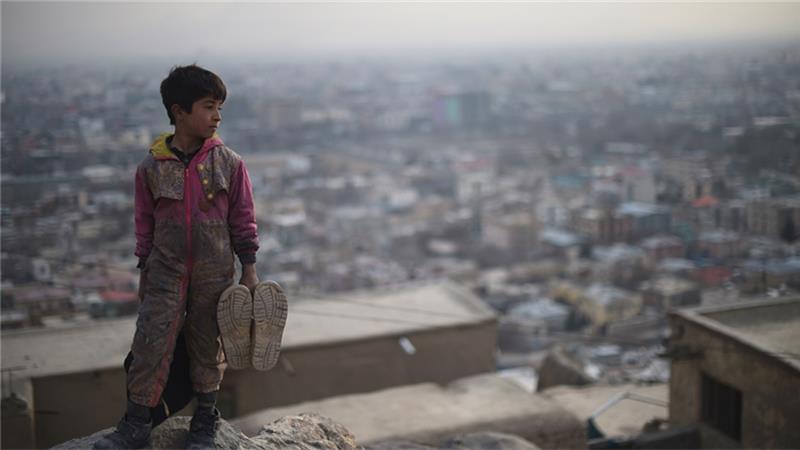Source: Aljazeera
Two reports were released on Wednesday reprimanding Afghanistan on its state of human rights. The United Nations Assistance Mission to Afghanistan’s (UNAMA) annual report on torture in detention, states that one-third of the 790 conflict-related detainees interviewed have been tortured or otherwise mistreated.
Although this shows a 14 percent decrease in torture incidents from last year, UNAMA offers specific recommendations to the government of Afghanistan and its international supporters for further reduction of torture and ill treatment in detention centres.
Amnesty International’s annual report on the global state of human rights contains a broader range of abuses, though reflecting a more ominous picture. In addition to the issue of arbitrary detentions and torture, the report highlights other forms of violence committed by the Afghan National Security Forces (ANSF), the international security forces, the Taliban and other armed groups, human rights abuses of women and girls, journalists, refugees and internally displaced persons (IDPs) and an increase in death penalty.
Sublime ideals
The harsh realities of actually living in war often take away the luxury of sublime ideals. Another UNAMA report, released last week, on civilian casualties mentioned that 74 percent of non-combatant deaths and injuries were caused by the Taliban and other armed groups fighting the Afghan state.
The humane treatment of terrorist suspects, therefore, would be a hard sell to Afghans who directly suffer from ruthless terrorist attacks on a daily basis. Nonetheless, human rights training among the ANSF must continue and be further re-enforced.
A liberal approach to death penalty too, is a luxury that Afghan intellectuals hope their society will reach someday, but for now, with rampant crime mostly going unpunished due to corruption – the husband whose pregnant wife was gang-raped, the mother who witnessed her toddlers shot dead by burglars and the families who lose members through kidnappings and highway robberies demand the ultimate punishment for perpetrators.
That said, other areas of weak human rights implementation that are highlighted in the Amnesty report are worthy of serious attention. Almost all point to the weakness of the Afghan government in the implementation of the rule of law. While part of this problem stems from technical, capacity and financial vulnerabilities, most of it has to do with a lack of political will on the part of the Afghan government and its international allies for the application of the rule of law in the past 13 years.
Appointment of capable and outspoken women, as well as men who believe in gender equality, in decision-making and policy-making positions would help lay the foundations for improvement of women’s (and children’s) predicament. Systematic and sustained work at grassroots level for awareness of equal rights for women, both among men and women, beginning at elementary school level, in the mosques and through the media will gradually affect a cultural and mentality change.
Freedom of expression
Freedom of expression is a right guaranteed by the Afghan constitution. While in comparison to many regional countries and most Islamic states, Afghans admittedly enjoy a great deal of freedom in expressing their thoughts, journalists have suffered enormously. There has been a 50 percent increase in the number of journalists killed in 2014 compared to the previous year. Many more were arrested, beaten or otherwise abused, especially in trying to cover last year’s problematic Afghan presidential elections.
The Amnesty report rightfully states that: “The government failed to investigate adequately and prosecute perpetrators of attacks on journalists and other media workers who were peacefully exercising their right to freedom of expression.” The feeble application of law – intended or otherwise – is again the culprit.
The Afghan refugees and IDPs are truly in a dire state. It is a humanitarian catastrophe that cannot be fixed with handouts and humanitarian emergency assistance alone. The Afghan government, for the first time, is talking about fundamental solutions for this crisis. It is up to the international donors to financially and technically support a long-term solution to Afghanistan’s IDP problem. They can also use their political leverage to influence Afghanistan’s neighbours to comply with international conventions on treatment of refugees to which they are signatories.
When Ashraf Ghani came to power in September 2014, he emphasised the implementation of the rule of law as the main pillar of his administration. He has taken small symbolic steps to this effect, but Afghans are yet to experience a substantial change in the culture of impunity enjoyed by strongmen and their proteges. Obviously, rule of law, free from corruption and double standard, will result in the protection of human rights for all citizens. Beginning the journey towards improved justice will lead to a better human rights record.
Helena Malikyar is an Afghan political analyst and historian.
The views expressed in this article are the author’s own and do not necessarily reflect Al Jazeera’s editorial policy.


